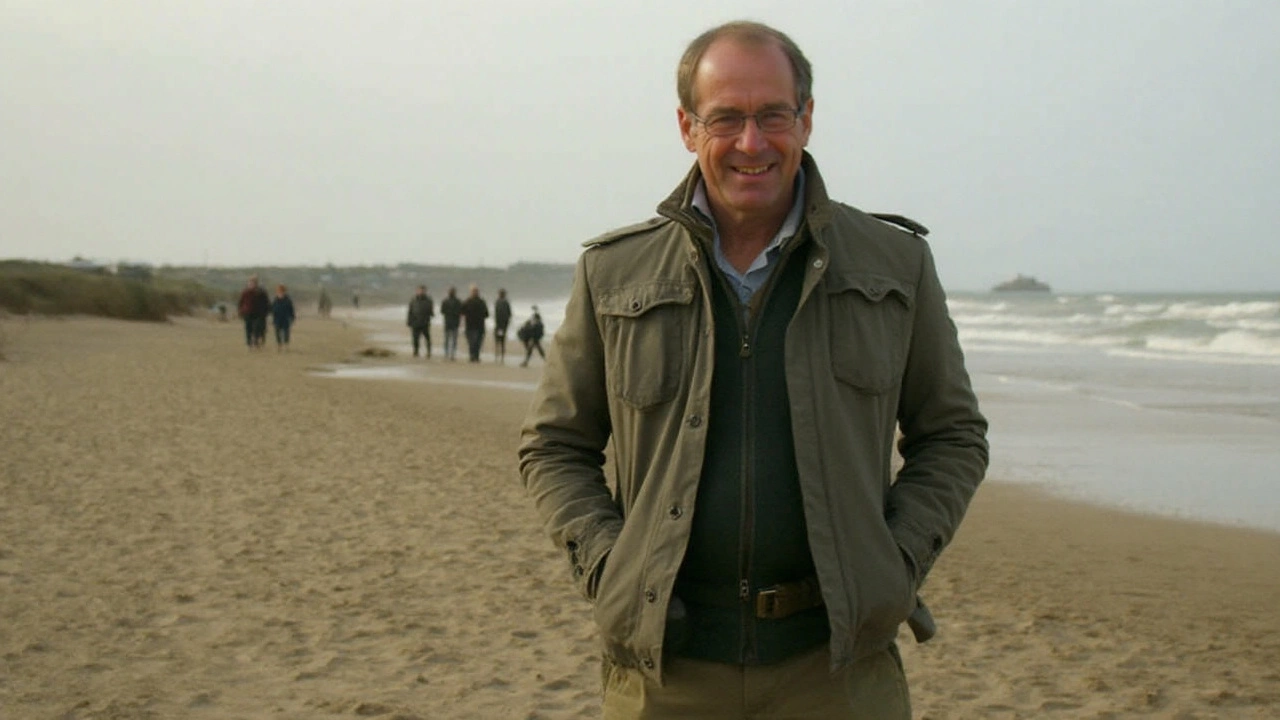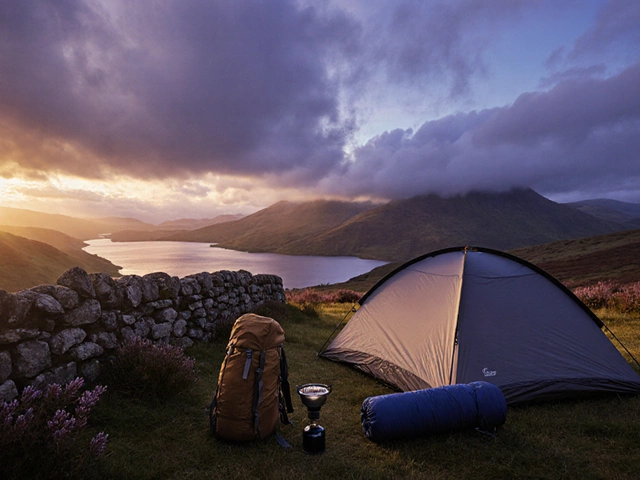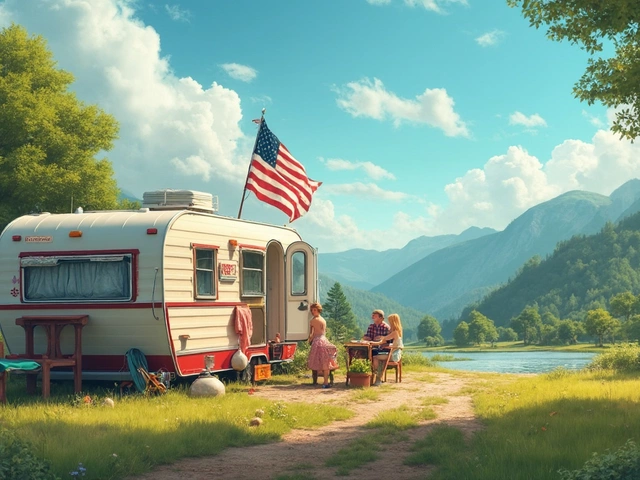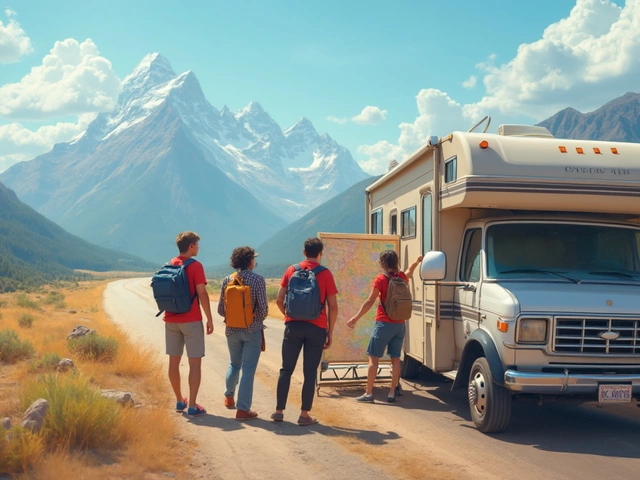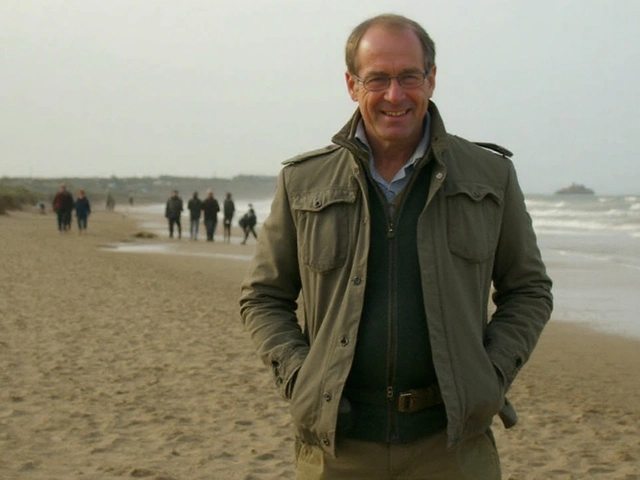You want the simple truth: sleeping in a tent right on a UK beach is usually not allowed, and in popular spots it’s actively enforced. There are exceptions-mainly in parts of Scotland and on a few privately managed shores with express permission-but rolling the dice often ends with a midnight knock, a fine, or a move-on order. If you’re after sand, surf, and a night under canvas, there’s a legal way to do it without wrecking your plans.
- TL;DR: England, Wales, and Northern Ireland-beach tent camping is generally illegal without landowner permission and often banned by local byelaws.
- Scotland-wild camping is broadly legal when done responsibly, but many beaches/dunes have extra protections or local restrictions; check before you pitch.
- Typical outcomes if you try anyway: move-on request, fixed penalty under a PSPO (~£100), or a byelaw fine (commonly up to £500).
- Smarter plan: use coastal campsites with direct beach access, or bivvy discreetly where it’s lawful and low-impact (Scotland, with care).
- Always avoid dunes, nesting bird zones, and areas below the high-tide line. Tides and wind can turn a chill night into a rescue call.
What the law actually says in 2025 (by UK nation)
People lump “the beach” into one idea, but the rules change by country and even by specific bay. Here’s the plain-language version of where you stand.
England & Wales
- Wild camping (tenting without permission) is illegal on most land, including beaches, unless you have the landowner’s OK. The foreshore (between high and low tide) is often owned by The Crown Estate or private/charity owners; that doesn’t make overnight camping a public right.
- Local councils commonly ban beach camping via byelaws or Public Space Protection Orders (PSPOs). You’ll see it on signs that also prohibit fires, BBQs, and alcohol. Expect move-on orders; fines are typical-PSPO fixed penalties are often around £100, and byelaw breaches can go up to £500.
- Dunes are frequently protected (SSSI, SAC, NNR). Pitching there can lead to heavier consequences than a simple move-on because you’re harming a protected habitat.
- National Trust beaches: many are covered by specific no-camping rules, even if parking is allowed overnight nearby. “Sleeping in a vehicle” often has its own restrictions in car parks.
Scotland
- Thanks to the Land Reform (Scotland) Act 2003, you have statutory access rights that include wild camping when done responsibly-small party, short stay, leave no trace-on most unenclosed land.
- That said, some coastal spots have local management rules, conservation designations, or seasonal controls. A standout example: Loch Lomond & The Trossachs National Park’s Camping Management Byelaws (March-September) require permits in designated zones.
- Beaches and dunes in Scotland can still be constrained by sensitive wildlife protection, site-specific byelaws, and “no camping” notices. You must check the exact beach.
Northern Ireland
- Similar to England and Wales: no general right to wild camp, beaches included. Councils and landowners typically prohibit tents on the sand. Expect move-on orders and potential fines under local byelaws.
Why this trips people up
- “Public beach” doesn’t equal “public camping right.” Access for walking or swimming doesn’t extend to pitching a structure overnight.
- The foreshore might be Crown or privately owned; either way, permission is rare, and local byelaws often overrule your plan anyway.
- Enforcement ramps up in summer and in places with fragile wildlife (terns, ringed plovers, seals) or a history of fires and litter.
“Access rights extend to wild camping. This type of camping is lightweight, done in small numbers and only for two or three nights in any one place.” - Scottish Outdoor Access Code (gov.scot)
If you take nothing else: in England, Wales, and Northern Ireland, treat beach tenting as “no” unless you have explicit, written permission. In Scotland, you can do it in principle, but you still need to check local rules and avoid sensitive areas.
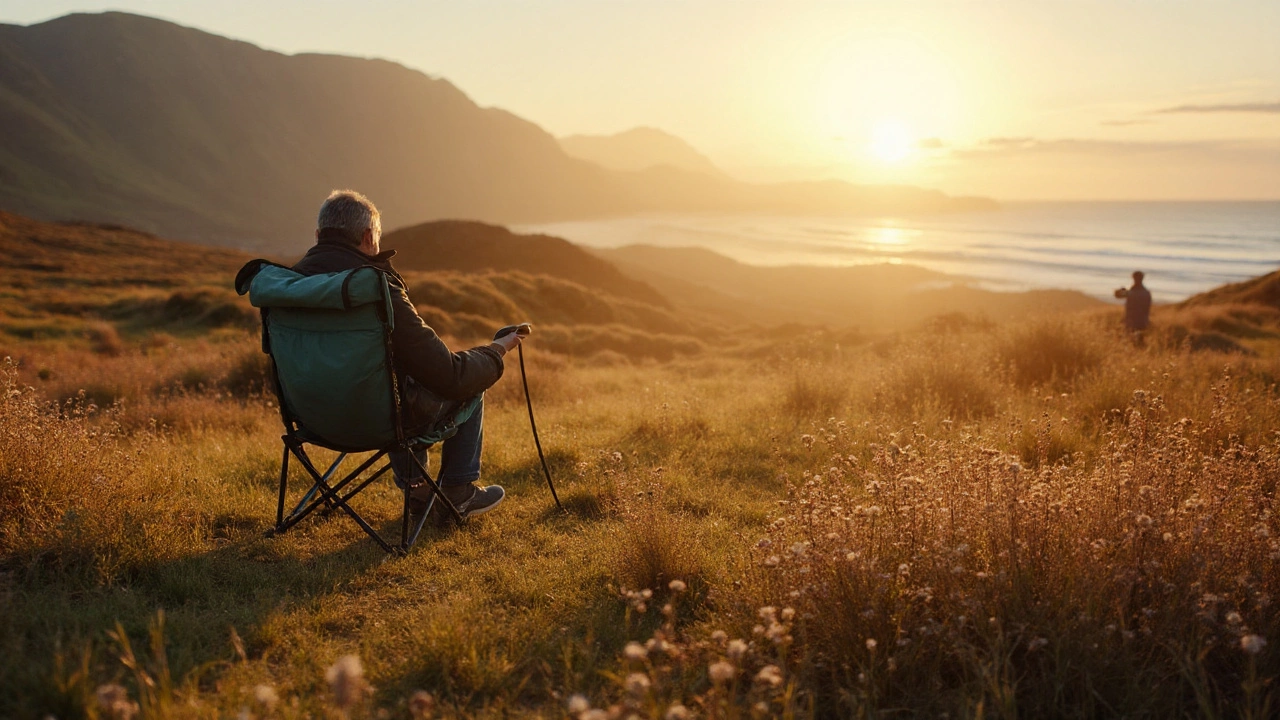
How to do it right: a step-by-step to stay legal, safe, and respectful
Here’s a simple workflow that keeps you out of trouble and out of the tide.
- Pick your country first. If it’s England/Wales/NI, assume “no beach tenting” as your default and look for a nearby coastal campsite. If it’s Scotland, continue to the next steps.
- Check local rules. Search the council’s “beach byelaws” or “public space protection order” page for that exact beach name. If a warden or ranger service exists, call or email them. Ask plainly: “Is a small backpacking tent allowed above the high-tide line for one night?”
- Confirm landowner stance. Where it’s not council-managed, beaches can be owned by The Crown Estate, the National Trust, private estates, or ports. If you can’t identify the owner or get permission, don’t pitch.
- Check conservation designations. Use authoritative maps (Natural England’s MAGIC Map, NatureScot maps, DAERA maps in NI). If it’s an SSSI, SAC, SPA, or NNR-especially dunes-assume no camping. These places protect ground-nesting birds and fragile plants.
- Study the tide and wind. Use a reliable tide source for that exact beach. Stay well above the last high-water wrack line and give extra clearance for spring tides, storm surge, or a wind shift. Offshore wind is quiet; onshore wind slams your tent and flings sand into your gear.
- Keep it light, late, and low-key. Arrive late, leave at dawn. One small tent, no groups, no guyline sprawl. In Scotland, that’s the spirit of the law. In England/Wales/NI, that’s still not a legal fix, but it’s how you avoid causing problems anywhere you are allowed.
- No fires on sand, no disposable BBQs. They scar the beach and trigger byelaw breaches. If you must cook where legal, use a raised gas stove on a stable board, away from dry grass and dunes. Pack out ash and micro-litter.
- Leave no trace. Pack out every scrap, including food bits and teabags. Wipe away peg holes and footprints if you can. If you brought glass, leave with it. If your dog joins (mine does), bag and carry every poo-no “burial” on beaches, ever.
- Have a plan B. If challenged, be polite, pack, and move to a legal campsite. If the weather turns, winds can push sand like needles; relocate behind a natural windbreak or head inland.
Rule-of-thumb checklist for any coastal overnight
- Never pitch on dunes or vegetated banks.
- Never pitch below the last high-tide debris line.
- Skip fires and disposable BBQs; they’re often banned and always messy.
- Use a tiny footprint: 1-2 people, one night max.
- Pack out everything, including greywater if you can.
- Keep noise and light low; wildlife (and locals) need the dark.
Safety kit and setup tips
- Sand anchors or buried stuff sacks beat normal pegs. Tie guylines to buried bags loaded with wet sand.
- Take a storm-ready, low-profile tent or a bivvy/tarp setup. Tall domes are kites.
- Use a groundsheet you don’t mind scratching. Sand is sandpaper.
- Red light headlamp to protect night vision and avoid dazzling others.
- Tide app, local forecast, and an alarm set well before high tide.
- For dogs: long line, water bowl, and a warm pad. Many beaches have seasonal dog bans-check signage.
Decision quick-check (use this before you pitch)
- Is this Scotland? If no → go to a coastal campsite. If yes → next question.
- Any local byelaw/management zone/permit area? If yes → follow it or move. If no → next.
- Is this a protected dune/bird nesting area? If yes → don’t camp. If no → next.
- Above high-tide line with extra margin? If no → don’t camp. If yes → small, quiet, one night.

Smarter alternatives, examples, checklists, and your biggest questions
Want the sand at sunset and sunrise without a legal headache? Here are realistic options that keep the mood and ditch the risk.
Three better ways to do the same trip
- Beachside campsite (England, Wales, NI, Scotland): Sleep legally, shower in the morning, and walk to the sand. Many sites sit right behind dunes or cliffs with a gate to the beach. Peak season needs booking, but this is the simplest win.
- Bivvy-at-dawn mission (Scotland only, or where explicitly allowed): Arrive late, sleep high and hidden in a bivvy bag, gone at first light. No tent poles, no group, true leave-no-trace. This fits the spirit of Scotland’s access code when done away from sensitive areas. Still, always check site-specific rules.
- Clifftop or headland wild camp (Scotland; elsewhere with permission): Pitch inland a little, not on the sand or dunes. You still get the surf noise, starry sky, and sunrise without trampling dune vegetation.
Best for / Not for
- Beachside campsite - Best for families, groups, and anyone who wants zero drama. Not for those seeking total solitude in July.
- Bivvy-at-dawn - Best for solo hikers who value stealth and simplicity. Not for hammock fans-there’s rarely a good hang on the coast.
- Clifftop wild camp - Best for photographers and stargazers. Not for windy nights or folks uneasy with exposure; watch cliff edges.
Quick packing checklist for the coast
- Low-profile tent or bivvy/tarp; sand anchors or stuff sacks
- Windproof layers, beanie, and a sleep system that handles damp
- Headlamp with red mode, tide times, charged phone + power bank
- Water and a sealed food bag (foxes and gulls raid at night)
- Microfibre towel, trash bags, tiny brush for sand in zips
- Gas stove + windshield (only where legal), no charcoal
Real-world examples of how it plays out
- Cornwall summer weekend (England): Signs say no camping, wardens patrol, PSPOs in place. If you pitch a tent on the sand, expect a quick move-on or a fixed penalty. Book a beach-adjacent campsite and do your sunrise stroll from there.
- Northumberland weekday in spring (England): Beauty, birds, and seals. It’s illegal to tent on the sand; dunes are protected. Instead, pick a small inland site and walk down at dawn. Bird nesting season is sensitive-keep dogs leashed.
- West coast bay (Scotland): You can often wild camp responsibly above the high-tide mark away from dunes if no local restrictions apply. Tiny group, late in/early out, no fire, immaculate leave-no-trace. Check the local access page before you go.
- Causeway Coast (Northern Ireland): Councils actively discourage beach tenting with byelaws; use coastal campsites or formal motorhome stopovers if you’re touring.
Mini‑FAQ
- Is sleeping on the beach without a tent legal? In England, Wales, and NI, “sleeping out” can still fall under camping or PSPO rules. If signs ban camping or overnight stays, a bivvy bag won’t save you. In Scotland, a low-impact bivvy is generally covered by access rights, subject to local rules.
- Can I sleep in my van in a beach car park? Often banned by signage or a PSPO. Expect fines or a knock at midnight. Use official motorhome stopovers or campsites.
- Are campfires ever allowed on UK beaches? Rarely. Many councils ban them outright. Fires scar sand, melt bottles, and risk dune fires. Use a gas stove only where lawful and leave no trace.
- What about BBQs? Disposable BBQs are widely restricted or banned. They scorch benches and grass, leave hot coals, and attract fines.
- Does fishing give me a pass to camp? Night fishing doesn’t equal camping rights. A rod in the sand doesn’t legalise a tent behind you.
- What about alcohol on the beach? Many PSPOs restrict alcohol in specific zones or allow officers to confiscate and disperse groups. Check local signage.
- Scotland’s special zones? The Loch Lomond & The Trossachs Camping Management Byelaws need permits in season. Other local byelaws exist-always check council or park pages.
- Can I camp on the foreshore because it’s Crown land? No automatic right. Ownership isn’t permission. Where The Crown Estate manages the foreshore, overnight camping is generally not permitted without express approval.
- Dogs on beaches at night? Daytime dog bans often run by dates, not hours. If dogs are banned April-September, that includes night. Keep them leashed around wildlife year-round.
- Channel Islands or Isle of Man? Different jurisdictions with their own rules-check local government sites and byelaws.
Next steps / Troubleshooting
- I’m set on sleeping by the sea in England or Wales. Book a coastal campsite with direct access. Search by beach name + “camping.” If you turn up late, ask for a late-arrival pitch-many sites allow it.
- I’m in Scotland and unsure about a specific beach. Check the local council website and the access authority page. If there’s no clear ban, avoid dunes, keep numbers tiny, stay above the high-tide line, and be invisible. Move if asked.
- I arrived to find “no camping” signs I didn’t anticipate. Don’t argue with the sign. Enjoy sunset, grab dinner, then walk or drive to your plan B inland. Return for sunrise.
- Weather turned windy and my tent is collapsing. Drop the profile (lower poles), re-anchor with buried sand bags, or bail to a sheltered spot inland. The coast magnifies wind; stubbornness gets gear shredded.
- Warden asks me to move but I’ve just fallen asleep. Be polite, pack quickly, and leave the place spotless. A respectful response often avoids a ticket.
Last thing: if you’re chasing that magic of the night surf and first light-go for it the right way. Book close to the sand, or in Scotland do it small, quiet, and by the code. You’ll get the same stars and the same dawn, minus the fine and the stress. And yes, I love the coast too. I still carry sand anchors, a red headlamp, and extra poop bags for my dog. Simple habits, no drama.
For searchers: beach camping UK is a mixed bag. The law isn’t out to kill your adventure-it’s there to protect fragile dunes, nesting birds, and the people who live by the shore. Respect that, and your beach nights will be the ones you remember for all the right reasons.
